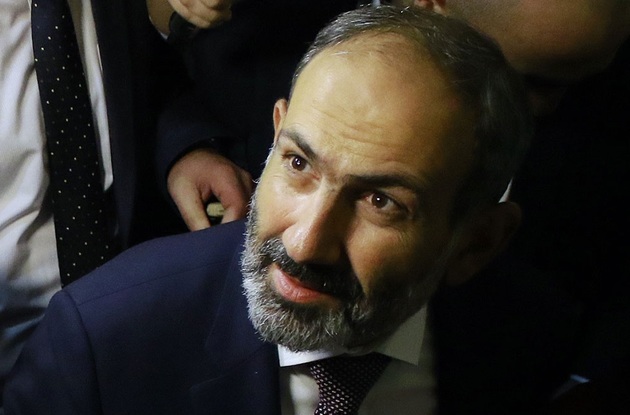Armenian Prime Minister Nikol Pashinyan again demonstrated his knowledge of history during an online press conference on Saturday. This time, the PM turned to the period of World War II, elaborating on Azerbaijan's...cooperation with the Nazis. According to Pashinyan, "Azerbaijan seeks to diminish the role of the Armenian people's victory over Nazism.." He argued that Azerbaijanis were allegedly actively involved in the Nazi legions.
Statistics on the number and nationality of collaborators during World War II are confirmed by both European and domestic archive materials, many of which are in the public domain. The absurdity of Pashinyan’s accusations is that it is impossible to diminish the specifically Armenian people's in the victory over Nazism, since the victory of the Soviet people in the Great Patriotic War is inseparable - this is the common contribution of millions of soldiers and front workers of the entire Soviet Union. Pashinyan considers the overall victory through the prism of quantitative contribution, counting the number of Armenian generals, soldiers and Heroes of the Soviet Union based on their nationality. But why did he come down on Azerbaijan? Baku never intended to diminish the Armenian people's role, especially since thousands of Armenian participants of World War II come from the Azerbaijan SSR. However, Azerbaijan proceeds from the fact that the installation of a monument to Nazi criminal and Hitler’s accomplice Nzhdeh in the center of Yerevan is contrary to the Armenian people's feat, who fought together with all the Soviet and European peoples against the Nazis.
Recently, the CIS countries celebrated Victory Day, but for modern Armenia this holiday has become ambiguous with the cult of Nzhdeh advancing in the country. Armenia's national policy was trapped in its own propaganda, which led to the search for "heroes". To maintain the image of "ancient people", the ideologists of Armenian nationalism are moving away from the principles of the post-Soviet consolidation. Politically and economically, Armenia continues to be part of the post-Soviet mentality, despite the fact that political strategists of the latest period of Armenian history seek to present the country as unconnected with others by common Soviet past and regional space. Such an attitude makes it possible to play an ethnic card, including to maintain warlike rhetoric in relation to the closest neighbors. This is not the first generation of Armenian politicians who uses this rhetoric as a political platform.
At his press conference, Pashinyan did not mention the existence of the Armenian Legion and many other Wehrmacht ethnic military units, considering it appropriate to protect Nzhdeh's criminal reputation criticizing one of the founders of the Azerbaijan Democratic Republic Mammad Amin Rasulzade. Indeed, the Nazis appealed for support to many emigrants who left the former Russian Empire, among whom were those who collaborated with the Nazis, harboring hatred for Bolshevism. However, unlike Garegin Nzhdeh, Mamed Amin Rasulzadeh, who shared democratic values, could not accept the fascist ideology, which was based on the recognition of the superiority of Aryan peoples. However, Pashinyan’s historical research was limited to references to Rasulzadeh in German sources, ay which the Armenian prime minister and his aides did not take a close look. Perhaps this kind of political demagogy is another attempt to manipulate the attention of the Armenian public. During the pandemic, when the whole country has been in constant tension, the Armenian Prime Minister couldn't think of anything better than to plunge into history, being no judge of it, as it became clear.






